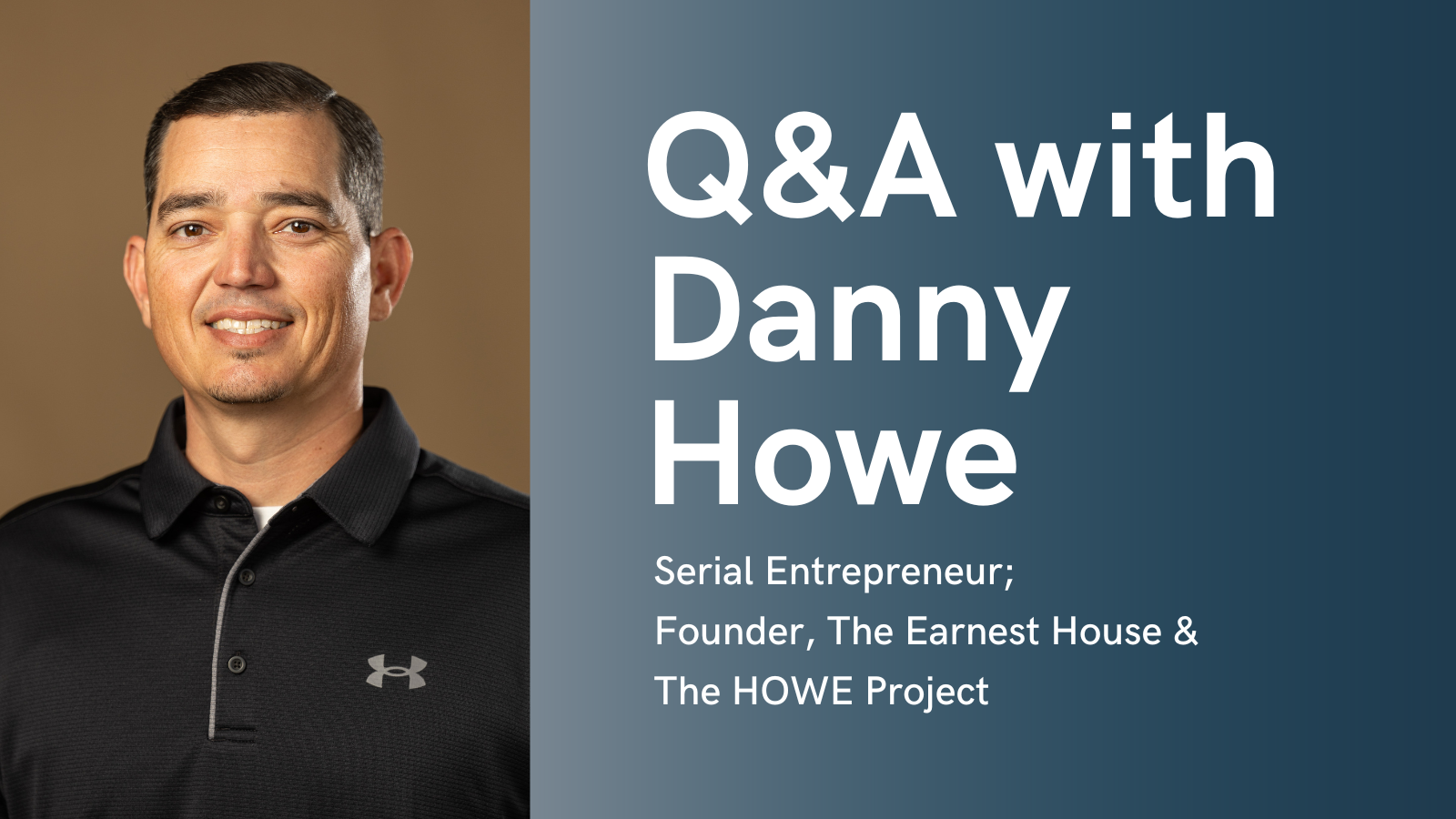Danny Howe is the founder of multiple small businesses in Tucson, Arizona, all of which provide opportunities to individuals reentering the community from incarceration. His passion for helping others stems from his lived experience with the criminal justice system. For more background on Danny, check out this YouTube video produced by Arizona Public Media, Southern Arizona’s PBS and NPR station.
Since 2016, The Earnest House has provided a safe environment to help individuals transition from incarceration to the community. What inspired you to establish this housing program?
I was on probation when I was 9 years old. By age 18, I had been expelled from school and faced 68 years in prison. I served time through a plea deal, but within a few years, I was back in trouble for guns and drugs. With no job, apartment, or driver’s license, I just kept returning to the same old things and ending up in the same situation. My life changed when a local company believed in me enough to offer me a job. This was a tremendous confidence builder, which ultimately led me to earn an associate degree and a career at the Pima County One-Stop Career Center.
From this journey, I recognized significant gaps in services for people who need and deserve another chance. I established The Earnest House to fill one of those gaps: a place to lay your head. For $21 a day, our residents get a bed, dresser, linens, pantry space, storage space—everything they need until they are ready to move on, whether that’s in 2 days or 2 years. Unlike other halfway houses, we don’t require participation in programming, but having this space is a stepping-stone to connecting to services and achieving self-sufficiency. To date, we’ve eliminated more than 90,000 individual nights of homelessness. We now have more than 30 beds in 3 houses.
You also founded The HOWE Project. What is its mission, and how does it interface with The Earnest House?
Through The HOWE Project, we want to strengthen our neighborhoods, bring safety to our streets, and break cycles of generational poverty for our most underserved families. “Howe” is my last name, but in this case, it stands for “Helping Others With Earnest.”
As The Earnest House started receiving more attention, we realized that (a) it was difficult to deny folks who needed services but not necessarily housing, and (b) the community wanted to support us. By establishing The HOWE Project as a nonprofit group, we were able to provide housing support, employment services, and transportation services on a broader scale. More people have a better shot at success.
We would be remiss if we failed to ask about your other related endeavor, Heavy Kettle. Where does popcorn fit into all of this?
We started The Earnest House with little financial support, and some of the folks who came to us couldn’t pay the housing fee. It’s against my nature to say “no” to anyone, so I needed to come up with something. My idea was modest, to say the least: we brought a rolling popcorn machine and a 10’ x 10’ pop-up to a local farmers’ market. Heavy Kettle Popcorn was born! Before long, we had a 14-foot trailer and 9 flavors of popcorn.
We sell our popcorn at school functions, church events, and all kinds of fundraising occasions. By “we,” I mean our clients, who are the ones who pop the corn and interact with the buyers. In addition to all proceeds going to client services, two real benefits of our “Corn for a Cause” initiative are the entrepreneurial skills clients gain and their community engagement. It helps our clients feel involved in the community in ways they haven’t previously experienced. Plus, the community learns more about the work we do.
What service or support did you receive or wish you could have received during your involvement in the criminal justice system to support you in your path of healing?
Anger issues got me locked up, but the prison couldn’t accommodate all who needed guidance on anger management. So, I was assigned to programming that wasn’t helpful to me at the time and didn’t prepare me for release. I needed help with building relationships and keeping my composure.
As a society, we really need to match needs with appropriate support. For example, almost anyone who has served significant time will need to learn how to use today’s technology and how to apply for jobs or apartments online. We partner with organizations in town to help our residents with these skills. They can also take relevant classes at Pima Community College, often with financial support from One-Stop.
From a poverty and drug dealing background, you turned your life around to become a successful business owner who is dedicated to giving back. What advice do you have for others looking to make a difference in the community?
My advice is, “Change your product, not your hustle.” Anyone who can stay alive on the streets or in prison has the skills to either start their own initiative or actively contribute to an established business. It really took seeing myself as something more to make something more of myself. I didn’t feel valued or a part of my community until I realized that my experiences could help someone else going through the same thing.
Don’t be afraid to share; surround yourself with a good team. I couldn’t do any of this without the support of my wife and everyone who makes The Earnest House and The HOWE Project successful: volunteers, the board of directors, house managers, the intake coordinator, community partners, and many others.
Like what you’ve read? Sign up to receive the monthly GAINS eNews!


